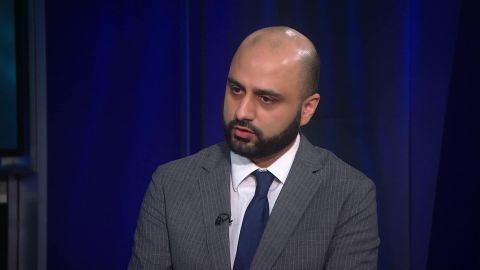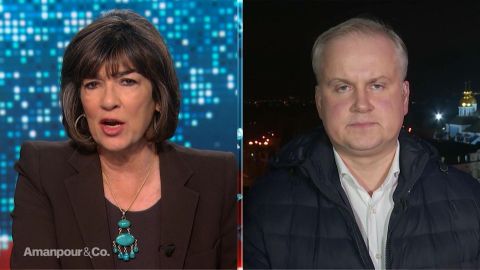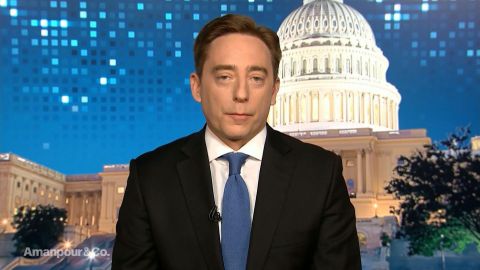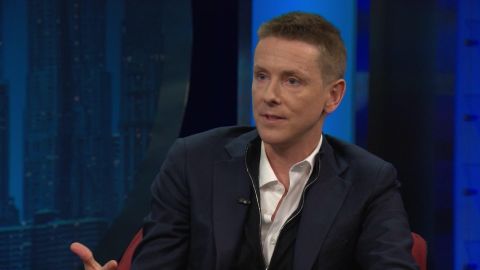Read Transcript EXPAND
CHRISTIANE AMANPOUR: …what is America’s most important strategic challenge? Is it Iran, as awful and as irritating, you know, and as violent as this can be, or is it with China and to an extent Russia as well?
EVAN OSNOS: Well, in some sense, we don’t have the luxury of choosing one over the other. These are both really and serious challenges facing the United States, and in one sense one is the tactical challenge at the moment and the other is the long-range strategic issue. There is no question we need to be thinking about Iran, thinking about Russia. And if that’s the weather — I mean, frankly, if that’s the turbulence and very dangerous conditions we’re facing at the moment, the climate issue really is China. It’s the foreign policy challenge, the diplomatic and strategic challenge we’re going to be contending with in the United States for much of the rest of this century, even if it is not on the front page every day.
And so, the purpose of a project like this, of trying to dig into both sides of the relationship, understand what’s driving them, how do they really see the future of this very important encounter, is to understand where are we going to be not tomorrow or next month, but where are we going to be 10 years, 20 years down the road in this important relationship.
AMANPOUR: So, we’ll get to that in a second. But just as an introduction, then how does this American focus on Iran right now and all that’s going on, how is it viewed in Beijing? I mean, is it a gift for President Xi Jinping? What’s going on, do you think, from their perspective now?
OSNOS: Well, officially, of course, you’ll hear that China is very clear, it wants to avoid any escalation of hostilities. Privately, there is no question that the Beijing leadership looks upon the possibility of the United States getting embroiled in another grinding conflict in the Middle East with some quiet relief and satisfaction because it’s remarkable, if you think about what the United States spent in its commitment to Iraq and its commitment to that war, those years in which the United States was focused on those issues were an enormous opportunity to China. I’ll give you one statistic. In 2003 when the United States went to war in Iraq, the American economy was eight times the size of the Chinese GDP.
Today, of course, they are almost peers, the United States is number one, China is number two. And in those years, China used that time to build up its diplomatic relationships around the world, to build up its own infrastructure domestically, to in invest this R and D, the kinds of things that, frankly, we would be inclined to do in the United States if we weren’t spending so much overseas. And so, china has looked on this with a little bit of wariness, they don’t want to see oil prices rise, the don’t want to see loss of access of oil from Iran. They’ve been relying on Iran. They are — in fact, they are Iran’s largest customer for oil abroad. And yet at the same time, the possibility of the United States will be going down this road is not something that the Beijing government, frankly, is worried about from their own perspective.
About This Episode EXPAND
Christiane Amanpour speaks with Iran researcher Mohammad Ali Shabani to break down what’s happening there. She also talks to former Ukranian Deputy Foreign Minister Danylo Lubkivsky about the country’s place in current events; and New Yorker writer Evan Osnos about U.S.-China relations. Hari Sreenivasan chats with Facebook co-founder Chris Hughes about his fight against corporate monopolies.
LEARN MORE



